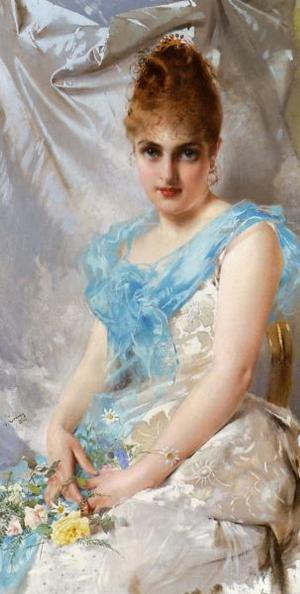Seth's Brother's Wife: A Study of Life in The Greater New York
Nonfiction, Religion & Spirituality, New Age, History, Fiction & Literature| Author: | Harold Frederic | ISBN: | 9781465627605 |
| Publisher: | Library of Alexandria | Publication: | March 8, 2015 |
| Imprint: | Language: | English |
| Author: | Harold Frederic |
| ISBN: | 9781465627605 |
| Publisher: | Library of Alexandria |
| Publication: | March 8, 2015 |
| Imprint: | |
| Language: | English |
The callousness of the question must have grated upon the hired-girl, for she made no reply, and slapped the dough over on the board with an impatient gesture. It was near the close of a fair day, late in May, and the reddened sunlight from the West would have helped to glorify any human being less hopelessly commonplace than Milton Squires as he sat in its full radiance on the doorstep, peeling and quartering apples over a pan which he held between his knees. This sunlight, to reach him, painted with warm tints many objects near at hand which it could not make picturesque. The three great barns, standing in the shadow to the south, were ricketty and ancient without being comely, and the glare only made their awkward outlines and patched, paintless surfaces the meaner; the score of lean cows, standing idly fetlock-deep in the black mire of the barnyard, or nipping the scant tufts of rank grass near the trough, seemed all the dingier and scrawnier for the brilliancy of the light which covered them; the broken gate, the bars eked out with a hop-pole, the wheelbarrow turned shiftlessly against a break in the wall, the mildewed wellcurb, with its antiquated reach—all seemed in this glow of dying day to be conscious of exhibiting at its worse their squalid side. The sunset could not well have illumined, during that hour at least, a less inspiring scene than this which Alvira, looking out as she talked, or the hired man, raising his head from over the apples, could see from the kitchen door of Lemuel Fairchild’s farm-house. But any student of his species would have agreed that, in all the uninviting view, Milton was the least attractive object. As he rose to empty his pan within, and start afresh, he could be seen more fully. He was clumsily cased from neck to ankles in brown over-alls, threadbare, discolored, patched, with mud about the knees and ragged edges lower down. He wore rubber boots, over the bulging legs of which the trousers came reluctantly, and the huge feet of these were slit down the instep. His hat had been soft and black once; now it seemed stiffened with dirt, to which the afternoon milking had lent a new contribution of short reddish hair, and was shapeless and colorless from age. His back was narrow and bent, and his long arms terminated in hands which it seemed sinful to have touch anything thereafter to be eaten. Viewed from behind, Milton appeared to be at least fifty. But his face showed a somewhat younger man, despite its sun-baked lines and the frowzy beard which might be either the yellow of unkempt youth or the gray of untidy age. In reality he was not yet thirty-six.
The callousness of the question must have grated upon the hired-girl, for she made no reply, and slapped the dough over on the board with an impatient gesture. It was near the close of a fair day, late in May, and the reddened sunlight from the West would have helped to glorify any human being less hopelessly commonplace than Milton Squires as he sat in its full radiance on the doorstep, peeling and quartering apples over a pan which he held between his knees. This sunlight, to reach him, painted with warm tints many objects near at hand which it could not make picturesque. The three great barns, standing in the shadow to the south, were ricketty and ancient without being comely, and the glare only made their awkward outlines and patched, paintless surfaces the meaner; the score of lean cows, standing idly fetlock-deep in the black mire of the barnyard, or nipping the scant tufts of rank grass near the trough, seemed all the dingier and scrawnier for the brilliancy of the light which covered them; the broken gate, the bars eked out with a hop-pole, the wheelbarrow turned shiftlessly against a break in the wall, the mildewed wellcurb, with its antiquated reach—all seemed in this glow of dying day to be conscious of exhibiting at its worse their squalid side. The sunset could not well have illumined, during that hour at least, a less inspiring scene than this which Alvira, looking out as she talked, or the hired man, raising his head from over the apples, could see from the kitchen door of Lemuel Fairchild’s farm-house. But any student of his species would have agreed that, in all the uninviting view, Milton was the least attractive object. As he rose to empty his pan within, and start afresh, he could be seen more fully. He was clumsily cased from neck to ankles in brown over-alls, threadbare, discolored, patched, with mud about the knees and ragged edges lower down. He wore rubber boots, over the bulging legs of which the trousers came reluctantly, and the huge feet of these were slit down the instep. His hat had been soft and black once; now it seemed stiffened with dirt, to which the afternoon milking had lent a new contribution of short reddish hair, and was shapeless and colorless from age. His back was narrow and bent, and his long arms terminated in hands which it seemed sinful to have touch anything thereafter to be eaten. Viewed from behind, Milton appeared to be at least fifty. But his face showed a somewhat younger man, despite its sun-baked lines and the frowzy beard which might be either the yellow of unkempt youth or the gray of untidy age. In reality he was not yet thirty-six.















